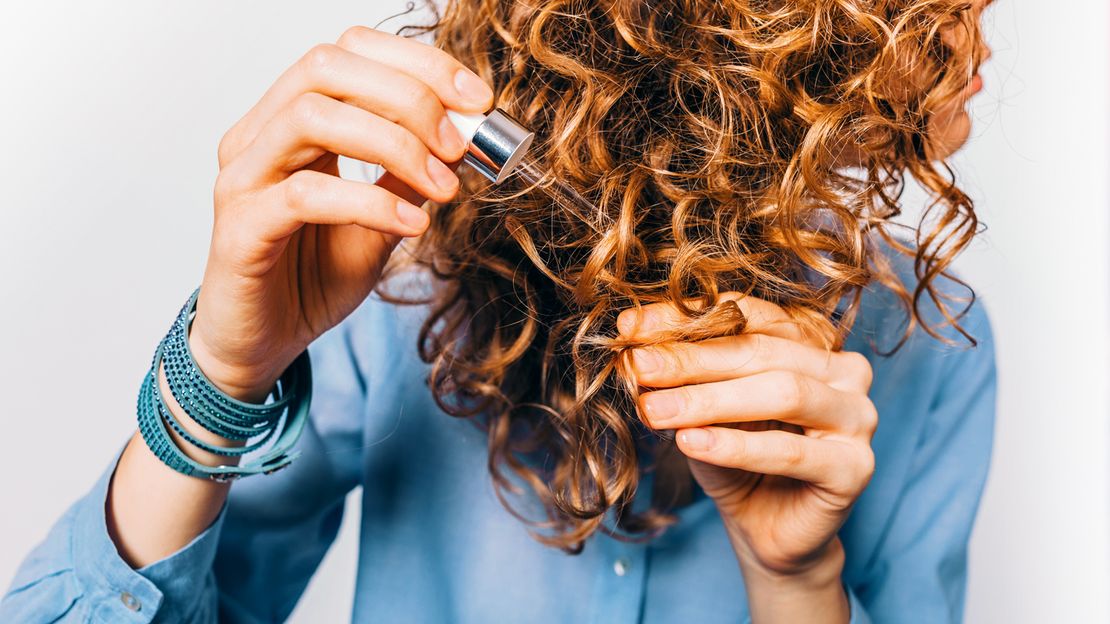
Hyaluronic Acid For Shiny & Healthy Hair?
Hyaluronic acid is an all-star skin-care ingredient praised for its ability to lock moisture into skin and produce a dewy, healthy complexion. Previous research even suggests hyaluronic acid may, from the inside out, help correct premature skin aging that occurs from ultraviolet (UV) exposure.
Recently, some users on TikTok have begun gushing about hyaluronic acid for another reason: its purported ability to transform hair from dry and brittle to healthy and lustrous.
Starting out with damaged-looking locks, she explains that she wet her hair and applied a hyaluronic acid product, The Ordinary’s Hyaluronic Acid 2% + B5, nightly. After one night, her hair looks noticeably healthier, and after two nights, she notes a “major difference.” At the two-week mark, she claims her hair to be “way more manageable,” revealing that even her hairstylist asked what products she had been using.
A physician at Campbell University in Buies Creek, North Carolina, and social influencer who goes by “Derm Doctor” on TikTok, endorsed Boyer’s claims in a viral video that has more than 10 million views. “Hyaluronic acid is a powerful humectant, meaning it holds onto about 1,000 times its weight in water,” he said, calling it “an amazing moisturizer for hair and skin.”
Should you be using hyaluronic acid in your hair, too? Here’s what experts want you to know.
How Does Hyaluronic Acid Serum Work?
New York City–based Daniel Belkin MD, a board-certified dermatologist and dermatologic surgeon at New York Dermatology Group, echoes Dr. Shah, saying that a hyaluronic acid molecule can bind up to 1,000 times its weight in water, “so it is a very powerful humectant — a molecule that draws in or retains hydration.”
Board-certified dermatologist Joshua Zeichner, MD, associate professor and director of cosmetic and clinical research department of dermatology at Mount Sinai Hospital in New York City, says hyaluronic acid is a staple in skin care, but he’s seen it increasingly used in hair-care products lately.
Is the Effect of Hyaluronic Acid the Same on Hair As It Is on Skin?
Each hair strand consists of layered proteins including keratin filament, as well as structural components such as matrix macrofibril, cortex, and finally cuticle scales, which are organized in a row, says Ava Shamban, MD, a board-certified dermatologist based in Los Angeles.
Healthy, vibrant, and shiny hair strands have smooth, flat cuticles and moisture is sealed in, Dr. Shamban says. On the other hand, in the case of damaged or dull-looking stands, the hair shaft is dehydrated and the overlying scales are elevated, giving hair a brittle texture. Hair is porous, and overwashing, frequent heat application such as from blow-drying, and environmental factors can cause damage.
When applied to the hair, hyaluronic acid “attracts moisture from the environment and pulls it into the hair, holding onto it — like water soaking into a sponge, it expands,” Shamban explains. “It fights frizzing, and helps to retain and maintain the proper balance of moisture proteins and lipids needed for healthy hair.”
Dr. Zeichner agrees that there are multiple benefits of adding the serum to your locks. “It can help soften, hydrate, and plump the hair shaft itself,” he says. “This means softer-, fuller-appearing hair.”
And, because it is already established as a great skin-care ingredient, hyaluronic acid is also great for the scalp, Shamban points out. “Often we don’t treat the scalp as dermis, but it is skin,” she says. The biggest difference between the scalp and the rest of our skin is that the scalp has thousands of terminal hair follicles, which grow hair strands. The scalp also has a greater sebaceous network than the rest of the skin. Shamban says this network is similar to a subway system in function with passageways to deliver and deposit oil, which is used for skin nutrition to coat, moisturize, soften, and protect.
Los Angeles-based celebrity hair colorist Tracey Cunningham explains that she is seeing a “skinification of hair,” which includes using skin-care ingredients like hyaluronic acid in hair-care products. “Finally, clients are starting to realize that they need to treat their hair similar to their skin for optimum hair health, especially if you color or use any chemical services or hot tools regularly,” she explains. In addition to hyaluronic acid, ceramides and glycerin are being added to hair-care products to deeply repair and moisturize strands, she notes.
